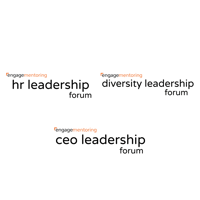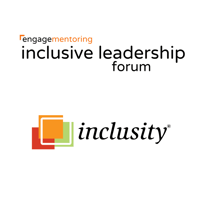Indianapolis, IN — February 15th, 2023: Engage Mentoring announced today the launch of three new...
Engage Mentoring Melds Data and Diversity to Elevate Organizations Through Mentorship
Indianapolis, IN – March 1st, 2023: Today’s corporate world recognizes the value of mentorship and how it can lift people to new personal and professional heights. Like apprenticeships in prior generations, mentorships have the ability to pass on hard-earned, practical industry wisdom in ways that conventional training can’t match. This is one of the best ways to grow the next wave of managers and executives from within the organization. However, the mechanics of facilitating mentor/mentee relationships and schedules within and especially between organizations has been difficult for decades. Engage Mentoring, led by founder Alison Martin and Yalonda Brown, president of diversity initiatives, offers a scalable platform, from best-in-class software to newly launched mentorship services, that can help companies eliminate the logistical challenges of mentorship and dramatically boost the organizational benefits realized from helping employees to help each other.
Mentorship and Diversity
“When we talk to organizations about why mentoring matters,” says Yalonda Brown, “we encourage them to look at it through the lens of diversity, equity, and inclusion, which drives a culture of belonging. Our mission is to help organizations grow inclusive cultures. Diversity itself doesn’t equate to success, but having access to meaningful, diverse connections through mentorship is a foundational aspect of growing individuals and growing culture.”
Brown freely admits that DEI is not a “silver bullet that solves everything.” Rather, it helps to eliminate communication silos and broaden perspectives.
When Brown reaches out to DEI leaders within companies, the first step is usually to identify if there is a desire to identify populations within the organization that, when examined through the lens of diversity, the company wants to better attract, develop, and/or retain. Those populations might be underrepresented at the leadership table or in the organization’s culture, but executives may not recognize the underrepresentation as being a cause for concern. However, further discussion around the organization’s key priorities often sheds more light. For example, businesses may prioritize employee retention, only to realize they’re having trouble specifically retaining women. People of color may not be choosing to explore leadership opportunities because the corporate culture fails to recognize and encourage their leadership potential. Too often, such issues manifest as low morale and burnout. Engage Mentoring can help reveal such issues through anonymous surveying throughout the workforce.
The next step is to investigate whether underserved populations can be helped through mentoring, be it one-on-one or group mentoring. If the company agrees that mentorship could bring value to at least some of its people, then the next step involves matching up mentors and mentees. That, according to Brown, is where most mentoring programs fail — and is one of the places where Engage Mentoring can help most.
Engage Mentoring Software
Broadly speaking, Engage Mentoring helps organizations design, manage, and measure the impact of mentoring relationships. While not mandatory in its process, the firm’s software platform can bring a degree of convenience, depth, and effectiveness lacking in other mentorship efforts.
Engage Mentoring’s application focuses on connecting individuals across any of dozens of topics. These could be topics of professional need or expertise, or they could be personal interests. Engage Mentoring bolsters its software with quarterly group mentorship sessions in which speakers spur group engagement and ideation around potential new lines of professional exploration, which can then lead to new mentorship directions. Perhaps most interesting, though, is how Engage Mentoring encourages participants to be both mentors and mentees. This dual role helps foster leadership capacity from both parties and prevents the common pitfall of mentors feeling they should sermonize in a one-way relationship.
“By leveraging our technology to implement a formalized mentoring program for our clients’ employees,” says Alison Martin, “a commitment of just one to two hours per month can yield incredible results. That’s why we have over 90% engagement with our platform and our Net Promoter Score is 73 in an industry where the average is 36.”
To build on this success, Engage Mentoring recently launched two mentoring programs, one specifically for HR professionals and another based around DEI. HR and diversity professionals tend to their employees’ development but rarely have their own means to gain perspective through mentoring for themselves. These new programs provide opportunities for peer group mentorship as well as 1:1 mentoring. Both programs qualify for SHRM (the Society for Human Resource Management) credits.
Measuring Mentorship Success
“We have data around the number of hours spent in mentorship relative to how much people felt they moved the needle in their skills development,” says Alison Martin. “We can also collect data on retention, promotability, and DEI metrics, and look at those in the present versus what we saw as an original baseline. But some of this is softer science, like how well the culture embraces mentoring and how employees judge their own increases in topic proficiency.”
Every client has different goals, concerns, and time scales for their desired results, but Martin emphasizes one key point: Clients repeatedly note how cultural change took off in earnest when mentees learned who their resources were. At that point, a mentoring culture is born, and people see a path to growth set before them. Reciprocally, mentors take a personal stake in those they’re helping and so work harder to elevate the organization. Many executive councils assume that people understand and practice mentoring by default. Evidence does not bear this out. This is why Engage Mentorship’s program is so needed and valuable.
Access to mentorship relationships is a critical piece of a cultural strategy designed to attract, retain, and develop talent. Those interested in the tangible economic benefits of mentorship, including higher revenue, lower turnover, and improved decision making, should refer to Engage Mentorship’s blog post on the subject. Or perhaps one statistic from Yalonda Brown will make the point: “Culture is 12.4 times more likely than pay to predict whether an employee stays or leaves. DEI helps people in need be seen and heard. Mentorship gives them a voice.”
About Engage Mentoring
Engage Mentoring’s mission is to transform cultures by leveraging software that provides access to meaningful relationships. We work with companies of all sizes and now offer leadership forums for professionals who work in the human resources and diversity space. Learn more at www.engagementoring.com.



